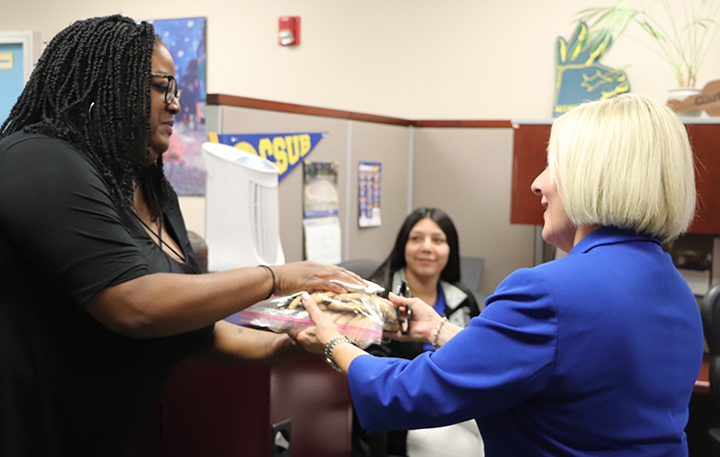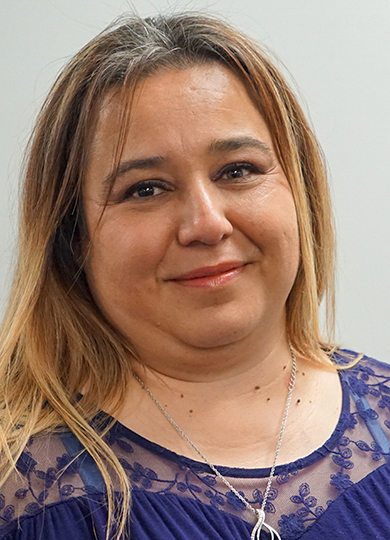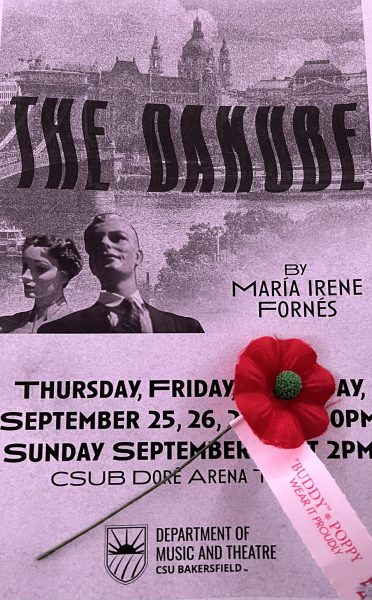Zelezny talks about upcoming events at CSUB
Katrina Gilmore, Assistant Director of the CECE, accepting cookies brought by President Zelezny during the Runner Walk and Talk on Feb. 25th, 2020.
March 4, 2020
CSU Bakersfield students gathered to meet with President Lynnette Zelezny and discuss their concerns at the monthly Runner Walk and Talk. The Runner Walk and Talks are open to anyone who would like to join Zelezny and discuss how campus life is going for them.
CSUB student and president of the Mental Health Advocacy Club Caitlin Livingston was one of the attendees. Livingston updated Zelezny on the club, as well as about an upcoming fundraiser the club will be hosting. Livingston also talked about her personal campus experience as a member of homecoming royalty.
“I am having fun being a part of homecoming and I am nervous because I usually don’t do this kind of stuff and this is the first time. I have actually never ran for something like this and by doing this I have stepped out of my comfort zone,” Livingston said.
Zelezny talked about how the Center for Career Education and Community Engagement was so important for students that are coming in as freshmen. Zelezny recommended that students make connections with the CECE office staff if they need help building their career portfolios on Handshake. CECE can even help students in finding and internship. CECE may also have potential job leads for the students as well. She also talked about how LinkedIn has partnered with the CECE office at CSUB to help students set up and optimize their profiles.
Dr. Markel D. Quarles, assistant vice president of student affairs, strongly encourages students to use the Center for Career Education while attending CSUB. Working with CECE can help students put themselves out there by building their portfolios, sending those portfolios to potential employers, and with tips for interviewing and landing a job.
During the talk, Zelezny confirmed the plan to require all incoming freshmen who live more than 30 miles from campus and meet other qualifications to live on campus. She defends the decision, saying that the university can offer the students financial aid to cover the increased cost of living on campus, and that living on campus will give the students more time to make use of all the academic services the university provides.
“The research shows that your graduation rate is much higher, and your success is much higher, and it’s obvious you are here more often, and its time on task,” Zelezny said.
There are students who will receive exemptions to the residency requirement. Qualifying exemptions would include freshmen who have young children, freshmen who are returning to college after already establishing themselves in the community, and others for whom living in a college dorm would present more difficulty than benefit. The decision remains a point of controversy among students.








